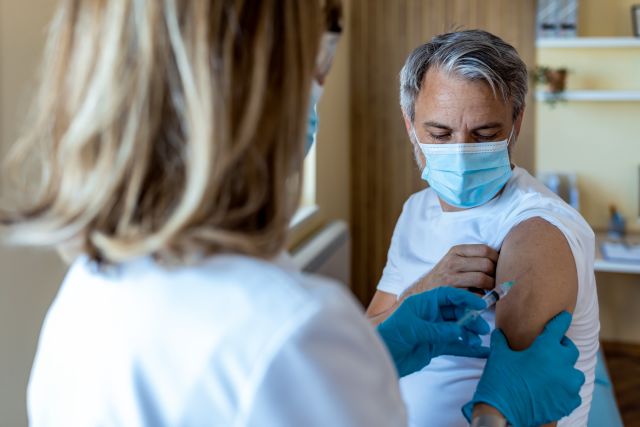Updated on January 10, 2022.
The U.S. Food and Drug Administration (FDA) has authorized boosters of all three COVID-19 vaccines: Pfizer-BioNTech, Moderna, and Johnson & Johnson (J&J). And health officials are urging all fully vaccinated adults to get one once they’re eligible amid an uptick in new cases nationwide and the swift rise of Omicron. New data published on December 23 in Cell indicate that three doses of an mRNA vaccine are more effective than two in protecting against the highly contagious variant, which now accounts for the vast majority of new COVID cases in the United States.
The FDA also used its authority to allow people to mix-and-match, giving adults who are fully vaccinated against COVID-19 the freedom to choose which vaccine they’d like to receive as their booster dose.
So, if you got the J&J shot at least two months ago, you should get a booster dose of either the Pfizer or the Moderna mRNA vaccine, or if you got fully vaccinated with the two-shot Pfizer vaccine at least five months ago, you can choose to get a Moderna shot as your booster dose. And so on. Health officials recommend either Pfizer or Moderna over J&J for most people, due to rare but serious health risks with the J&J vaccine.
The ability to mix and match COVID-19 vaccines offers people more flexibility in getting additional vaccine doses based on what’s available in their local area.
So, which one is best?
Research is ongoing, but the CDC recommends that people get boosted with Pfizer or Moderna. A growing body of evidence suggests that mixing and matching is noy only safe but also produces as many or more antibodies as getting the same vaccine as a booster.
In a preliminary mix-and-match study conducted by the U.S. National Institutes of Health (NIH) that has not yet been published or peer-reviewed, fully vaccinated people who got any of the three available COVID vaccines were given a booster dose of either the Moderna, Pfizer-BioNTech, or J&J vaccine. Overall, there were total of nine different combinations.
The NIH study found that found that people who originally got the Moderna two-dose series and then received any company’s booster saw the biggest increases in neutralizing antibodies against the coronavirus.
But those who got the Moderna booster were given a full dose booster—not a half-dose, which is what has been authorized by the FDA.
The lowest rise was seen in people who got J&J’s vaccine for their initial dose as well as their booster. Those who got the J&J vaccine had a more robust immune system response if they got a booster dose of one of the mRNA vaccines—either Pfizer or Moderna.
Research on the best combinations and how long immunity lasts is ongoing. But, again, federal officials have stated a preference for people to get the mRNA vaccines due to rare but serious side effects with J&J. More research is also needed to examine how long immunity following boosters lasts over time.
Remember, antibodies aren’t everything
Antibody levels, which were investigated in the NIH study, are only one measure of immunity against the coronavirus. The body has other ways of defending itself.
Unlike the innate immune system, which launches a general attack to invading pathogens, the body also has an adaptive, or acquired immune system, which includes two types of cells that learn from experience: T-cells and B-cells. B-cells are antibody factories, while T-cells support B-cells and kill virus-infected cells outright.
Antibody levels may fall after infection. But T-cells and B-cells that the immune system deployed to fight off the infection (or that a vaccine has taught the body to make) can be stored by the immune system for years, where they remain ready to do battle if the virus ever returns.






